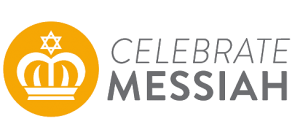Whether I am in Wichita or Washington D.C., Miami or Minneapolis, London or Los Angeles – fellow believers always ask me what is the best way to share Yeshua with their Jewish friends. Frankly, I both love and loathe this question. I love it because it shows that the person is interested in sharing the Jewish Messiah with a Jewish person. But I hate it because they seem to expect me to give a formulaic response about how to communicate Jesus in a Jewish way, akin to the “Romans Road” or the “Four Spiritual Laws.” The fact is that sharing is not that simple, with either a Jewish or non-Jewish person. Rather, it is all about your witness and their need for peace and desire for truth. However, I would like to offer you some biblical understanding about sharing Messiah with a Jewish person and some tools – not formulas – to help you.
First, we must understand that it is imperative that we share with our Jewish brothers and sisters – just look at the example of Paul. Paul was trained as a religious Jew under Gamaliel, one of the most renowned rabbis of his day. Yet when he was commissioned by Jesus, he was told that he would bring the Gospel – which at the time had been available only to Jewish people – to the non-Jewish people of the Roman empire (Acts 22). That is just what he did: all throughout the Mediterranean, he shared the Gospel with everybody he encountered.
Paul had an incredible impact for the Lord among the Gentiles, yet he never lost a love for his people, the Jewish people. In Romans 10 he begs the believers to share the Gospel with the Jewish people because if nobody tells them, how will they have an opportunity to respond? In Romans 11, he says that by the non-Jewish people receiving Jesus, they now have the responsibility to make Jewish people jealous.
We do not save anybody – that is the Lord’s job. We simply present the evidence and live a redeemed life to make the people around us jealous.
The following are some ideas and tools to help you share with your Jewish friends:
1) After your conversations about God and the Messiah, you could always invite them to a church or small group in which you think they would feel comfortable. This can be done on a special occasion or during a regular service.
2) You could invite them to a social outing of fellow believers and friends. If they have preconceived notions about believers – imagining us to be dull, boring, or as having no fun – this could show them that believers are actually normal, fun-loving people like anybody else. This could also bring a more defensive Jewish non-believer into a good community slowly, so that he or she has time to get used to the idea of hanging out with believers.
3) Introduce your Jewish friend to another Jewish friend who believes in Jesus.
4) Ask if you could attend Passover with your friend at their family’s house or wherever they are celebrating. It would not be good to bring up Jesus during Passover, but your friend will be intrigued by your interest and it may open up conversations later.
5) Have your church or small group hold a Passover Seder, and invite your non-believing Jewish friends.
6) Throw a party with like-minded and discerning believers who know that you wish to share with your Jewish friend. Also invite Jewish non-believing friends and let the conversations flow.
7) Bring your Jewish friends to a Messianic Jewish congregation near you. This is a group of Jewish and Gentile believers who usually worship on Friday nights and/or Saturday mornings and typically conduct the service in a relatively traditional Jewish way. Important: Go to the congregation first to make sure that you are comfortable with the service and the way it is conducted.
8) Contact a Jewish missions organization to see if there are any events going on in your area, such as special speakers, concerts, debates, movie showings, holiday services and celebrations, etc.
9) Offer to study the Hebrew Bible (Old Testament) with them, like a one-to-one Bible study.
10) Once again, the most important thing is to maintain regular contact with your friend, whether that means getting together for coffee, parties, or dinner. The relationship is the most important way to assure that your friend takes you and your faith seriously.
The Road to Jerusalem
1) Jeremiah 17:9 – Heart is deceitful
2) Isaiah 64:6 – Righteous deeds=Filthy rags
3) Isaiah 59:1-2 – Sins separate from God
4) Ezekiel 18:20 – You are responsible for your sin
5) Leviticus 17:11 – Blood is needed for atonement
6) Isaiah 53:1-12 – Sufferer taking sin which heals
7) Daniel 9:26 – Messiah comes before second temple destroyed
8) Genesis 15:6 – Believe=Righteousness
9) Habakkuk 2:4 – The just shall live by faith
10) Micah 5:2 – Messiah born in Bethlehem
11) Psalm 22:16 – Depiction of Crucifixion
Contributed by Ryan K.

